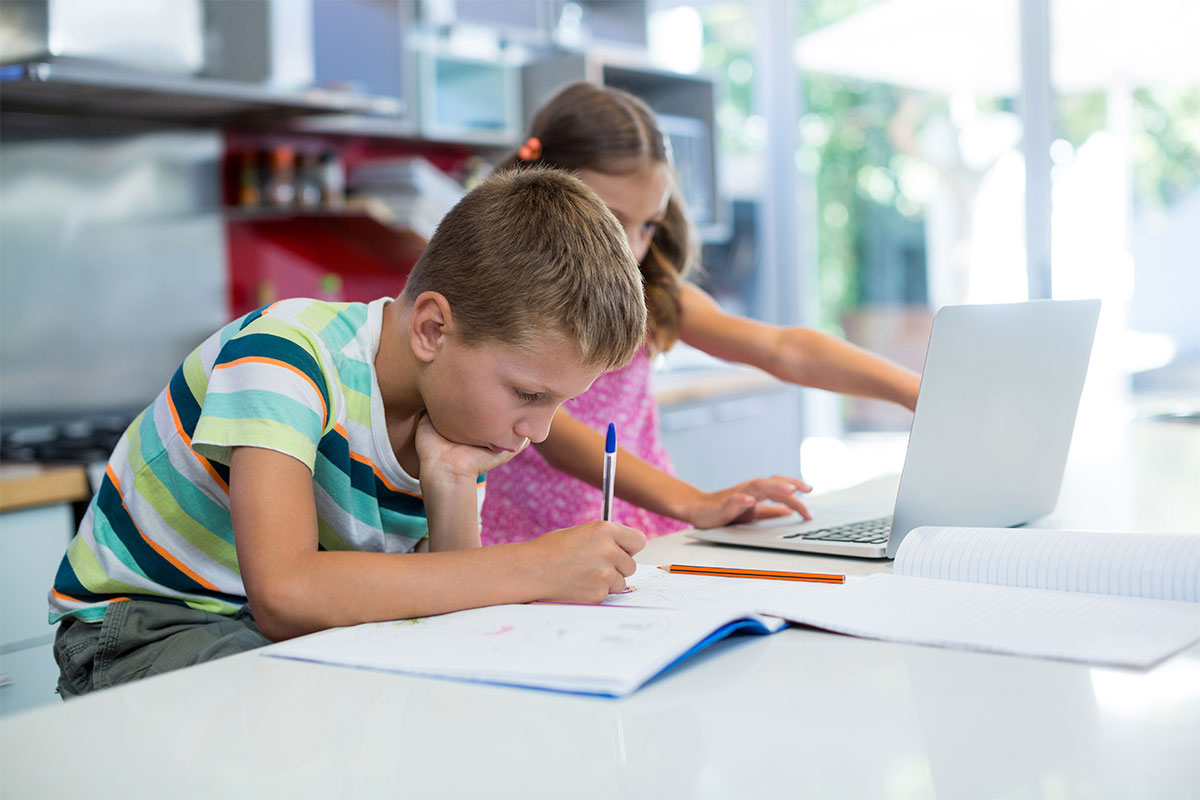Daunted about supervising your kids’ learning from home? We hear you! Teacher and mum-of-two Sarah Galbraith is here to take the anxiety out of it with her top tips for working parents. You’ll be as relieved as we are to hear that any learning at home is a bonus!
Dear Circle In community and parents,
As a parent and teacher thinking about how to cope in Term 2, I want to reassure you that neither the Department of Education or your child’s teacher expect you to replace the teacher. Teachers are focusing on maintaining and updating your children’s skills through remote learning. The key message here is that it is not online learning, it is remote learning in a time of crisis.
Top tips for working parents to make supervising your children’s learning from home a bit easier.
-
- Have a specific place for learning like a table or desk. You may also want to keep a tub or shelf for your children’s home learning materials. This way kids have a dedicated space where they can learn, and know where to find their school supplies.
- Draw up a schedule of what the day is going to look like. Children thrive on routine.
- Use rewards. Reward your children for ‘having a go’ with their set learning tasks from the teacher, and for using learning time for learning. For example they could earn an activity of their choice.
- Set boundaries. You may have consequences set up for when kids refuse to have a go. This could be as simple as losing out on free choice time. Try to set some boundaries that work for you and your family.
- Don’t push kids if they’re frustrated or parents are feeling stressed. Take a break and come back to the task later.
- Check in with your classroom teacher. There’s no such thing as a stupid question. Teachers are happy to support their families as much as they can.
- Play based learning is key for all ages. Find ways to teach your children in everyday experiences through their play, nature walks, family experiences, etc. Try to focus on life skills (cooking, cleaning, laundry, nutrition, exercise) over school curriculum. This is a great opportunity for your children to learn something they may not learn at school.
- Incidental everything. Focus on letters on the back of the cereal box, for example, or numbers on a walk: ‘I spy an even number; I spy an object that starts with a letter’.
- Lots of brain breaks. Help kids refocus and feel ready to learn.
- Include daily exercise and mindfulness. Incorporate sport, movement, yoga and mindfulness activities for both physical and mental wellbeing.
- Encourage reading time. Either independent reading or an activity for the whole family. Kids should see parents choosing to read, too, as it shows the value of reading. Keep in mind that children don’t always need to be read to. They can read to a stuffed animal or look at pictures in a story book or comic. Being creative and having fun is the most important thing.
- Journaling. Document your own history! Parents or older siblings could scribe, or kids can write about their COVID-19 experience.
The coming months will definitely bring some challenges for parents, our children and teachers. However, we are all in this together and it is important to remember any learning at home is a bonus – mental health and being happy at home with family is the priority! So, just do what you can!
Take care and stay safe.







